Hollywood stars are sounding the alarm and calling for a strike against neural networks (6 photos)
In recent months, the world has been talking only about artificial intelligence and neural networks, and the inhabitants of the Hollywood hills are slowly beginning to become wary - what does this mean for the film industry? In fact, AI has been used in Hollywood for a very long time, but not everyone knows it. With the Writers Guild of America strike, discussions about the future of AI and neural networks in the entertainment industry are becoming more and more pressing, and here's what the stars are saying. 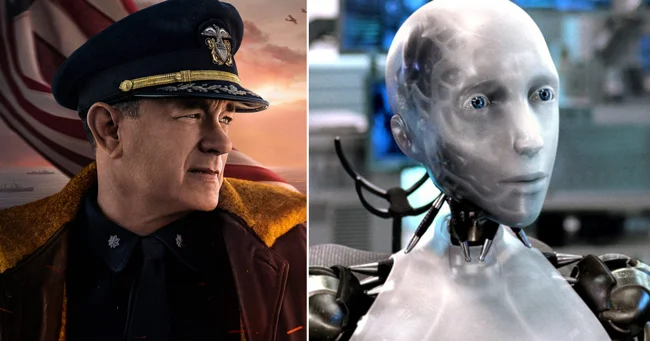
AI is already being used in Hollywood
If you thought Hollywood was still a long way from using deepfakes, ChatGPT and other fruits of neural networks, think again. In fact, this has been happening for a long time, just mostly behind the scenes. For example, many viewers are not even aware that neural networks played a key role in one of the biggest Hollywood franchises, Star Wars. 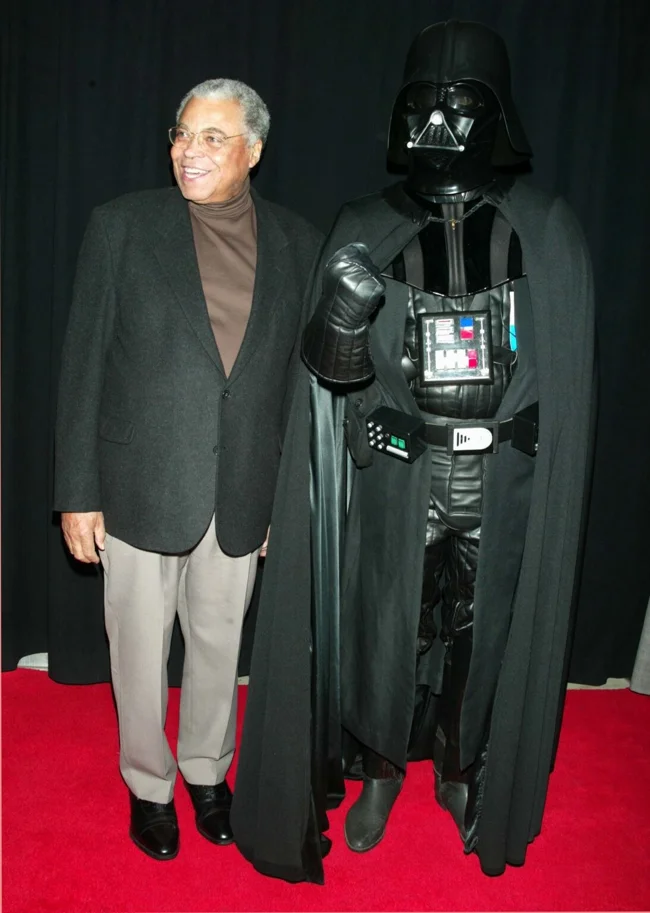
The legendary James Earl Jones has voiced the iconic supervillain Darth Vader since 1977. However, the actor has already passed 90, and, of course, he deserves to retire with honors and rest peacefully. This would certainly have impacted the future of the franchise if Jones hadn't signed over the rights to his voice in Star Wars to a company called Respeecher. The company used audio clips from his previous work to use neural networks to recreate his voice without his physical presence. The result was featured in the Obi-Wan Kenobi series (2022), where Darth Vader ended up looking much more like the 1977 version of himself than in later films in the franchise.
Tom Hanks shared his opinion on the future of AI in the industry
Many actors, including the great Tom Hanks, are well aware that in the future they may be replaced by a copy of themselves created by neural networks. On an episode of Adam Buxton's podcast, Hanks talked about how he could potentially continue acting after death thanks to the use of AI. “Anyone can now recreate themselves at any age using artificial intelligence or deepfake technology,” he said. “Tomorrow I could get hit by a bus and that would be the end of it for me, but my roles will continue to come and go.” 
He believes that the development of AI and neural networks will be so rapid that “nothing will indicate that this is not me.” When Buxton suggested that audiences might be able to tell the difference between a real actor and one created by neural networks, Hanks replied: “No doubt people will be able to tell us apart, but the question is, should they? There are people who don’t care, who won’t look for differences.”
Hanks explained that with neural networks becoming such a big issue in Hollywood, "there are discussions going on right now in all the guilds, in all the agencies, in all the law firms to think through the legal aspects of the fact that my face, my voice, is mine." and all other actors are our intellectual property." Hanks admitted he'd seen this coming since making The Polar Express in 2004, when the crew entered "massive amounts of our personal data into the computer." 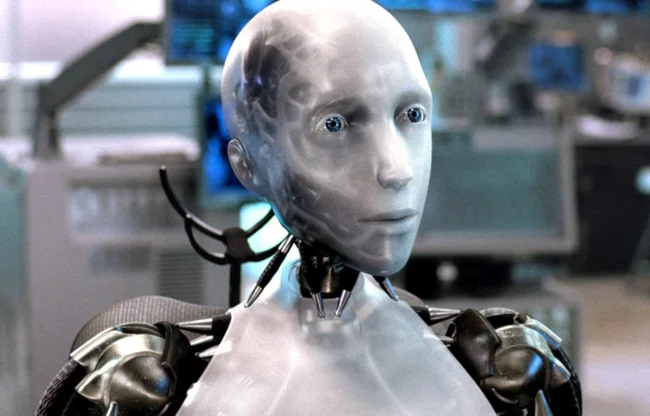
“We saw this coming, we saw it being possible to take the zeros and ones in the computer and turn them into a face and a character,” Hanks continued. “It’s progressed a billion times since then, and we see it everywhere.”
Justin Bateman calls on Hollywood to get ready
In the midst of the 2023 Writers Guild of America strike, actress Justine Bateman voiced her concerns about the growing power of AI. “The really harsh reality of AI in the entertainment industry is that it's trained on all of our past work, all of our scripts, our films, all of the actors and acting, all of it, so it's kind of a burp. It’s a fusion,” Bateman says. “You give it a task, and it comes out with some new product based on all our past work.” 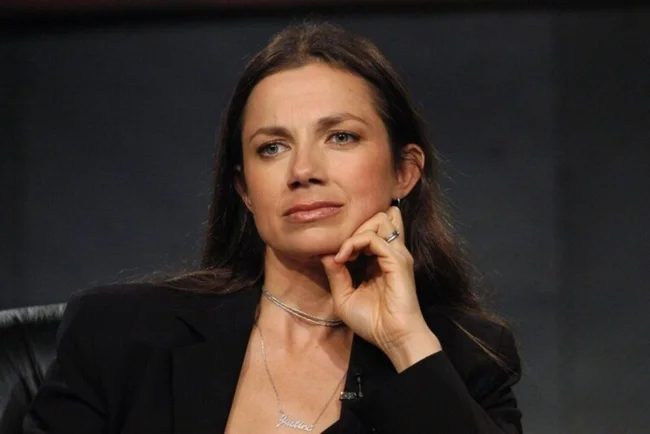
She said the Copyright Office is actively involved in the matter because the neural network situation could be "a massive disruption on a scale the likes of which we've never seen before." She urges Screen Actors Guild (SAG) actors to “not accept any AMPTP (Alliance of Motion Picture and Television Producers) proposals that do not protect against AI.” This includes protecting their “look and voice” and implies that protecting these aspects should be a top priority.
Unfortunately, AMPTP is refusing to participate in the negotiations, which Bateman says is “extremely worrying.” She explained: "If the Directors Guild of America and the Screen Actors Guild can't put restrictions on AI, I personally don't believe there's any choice but to go on strike because they're saying, 'We're not even going to talk to you about AI.' "mean that not only can they use it in the future, but they have already made plans for how they will use it."
Bateman's opinion is informed by her previous experience
Bateman already has experience preparing for major changes in Hollywood, having been closely involved in SAG-AFTRA negotiations when the writers went on strike in 2007-2008. At that time, few people believed that you could make big money from video on the Internet. However, despite the fact that it seemed unlikely at the time, Bateman still defended her rights to some part of the profits in this area. Now streaming has become almost a separate industry. “Streaming is the most profitable business. These are some of the biggest companies in the world, not in the entertainment industry, but in the world.” 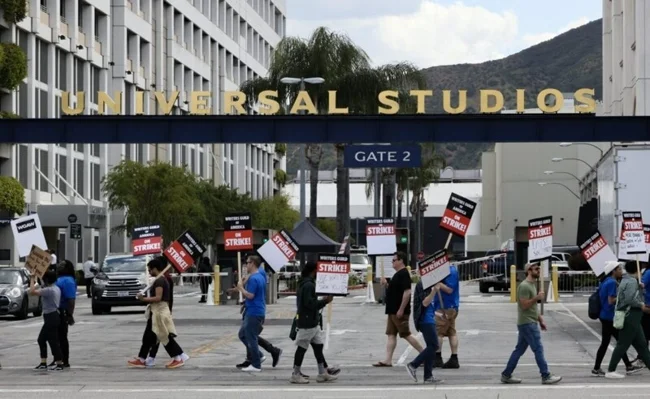
Based on this experience, she is trying to warn industry workers that the use of AI in Hollywood will lead to the same result, and it is likely that in the future it will replace screenwriters, actors and many others. “It’s outrageous for them to not restrict AI in any way and not share some of the billions and billions of dollars that they make from the work of the writers, crew, directors and actors.”
A number of actors, like James Earl Jones, voluntarily sign over the rights to use their image and voice in the future. While Jones' motivation was his advanced age, others are doing it in hopes that more offers, especially voice acting, will come their way.
According to Bateman, neural networks are used solely for reasons of “human greed.” “It replaces human expression,” Bateman says. - I declare that this is funny. We don't need to replace human expression. Replace it with AI. The problem that they are trying to solve with its help simply does not exist.”
